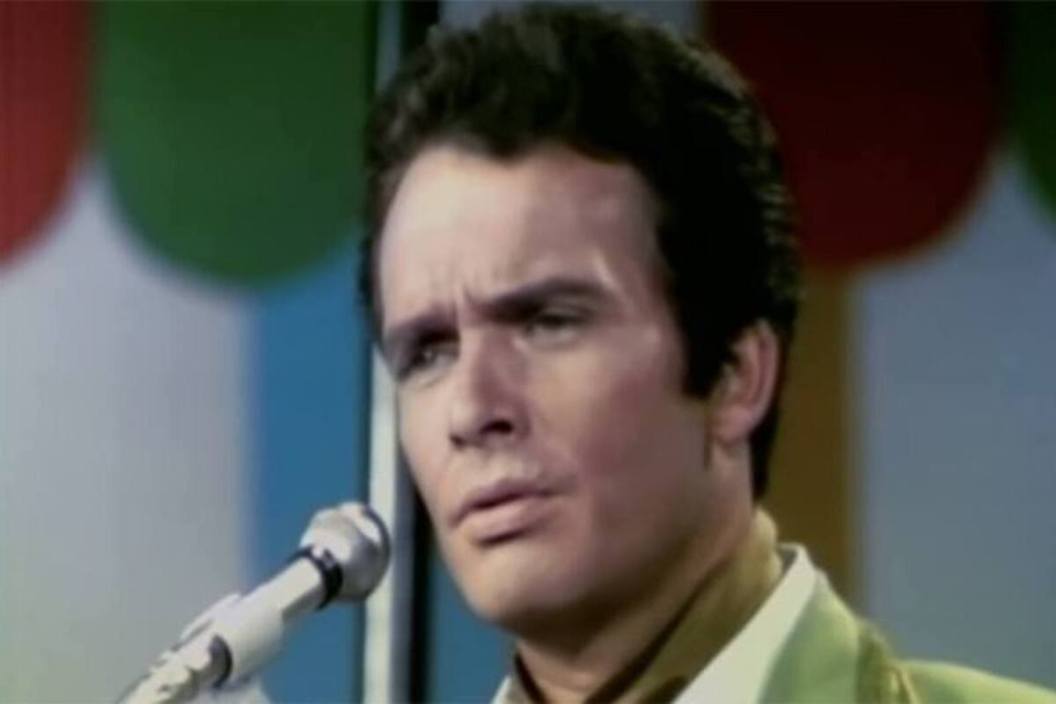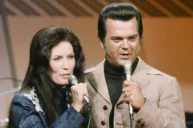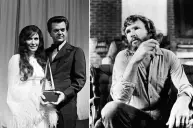[dropcap]A[/dropcap]mid the cultural and global shifts that shook the world in 1968, a string of essential country songs brought about a different kind of radical change. From April 20 to the end of the year, eight different No. 1 hits sped up seven stars' climbs to becoming household names. In the process, each artist helped modernize the sound and image of Nashville.
Two pop-accessible hit-makers in Conway Twitty and Glen Campbell introduced their own brands of country class to broad audiences. That same year, Merle Haggard and Johnny Cash sculpted an outlaw image that'd shake up mainstream country in the following decade. Most importantly, 1968 was a pivotal year when women in country music boldly spoke their minds, pushing the boundaries of rigid social norms in the genre.
"Fist City" by Loretta Lynn (No. 1 the Week of April 20)
Loretta Lynn gets quoted as saying she was there when country music went uptown. A time when Nashville's Music Row might as well have been in Hollywood or the Big Apple got further legitimized when one of Lynn's most defiant hits burst through a glass ceiling first cracked by Kitty Wells.
"D-I-V-O-R-C-E" by Tammy Wynette (No. 1 From June 29- July 13)
One of the great storytellers in country music history (in the vocal talent sense and when it comes to genuine empathy for listeners' struggles), Tammy Wynette offered this blunt, gut-wrenching take on the bitter end of matrimony.
"Folsom Prison Blues" by Johnny Cash (No. 1 From July 20- Aug. 10)
The rough-around-the-edges image of the Man in Black was strengthened by Johnny Cash's live prison albums. The first of these albums, At Folsom Prison, opened with the seminal recording of a song that'd opened his sets for years. Chances are, it's made quite the impression on Cash's various sonic children, from his friend Waylon Jennings to such modern-day miscreants as Eric Church,
"Mama Tried" by Merle Haggard (No. 1 From Aug. 31- Sept. 21)
Merle Haggard set the template for songs sympathizing with hell-raisers with arguably his greatest single. A few years later, the country stars themselves would cast a similar shadow as Haggard's wayward mama's boy.
"Harper Valley P.T.A." by Jeannie C. Riley (No. 1 From Sept. 28 to Oct. 12)
Although she lacked the staying power as others on this list, Jeannie C. Riley made as bold a musical statement as anyone in 1968. Her song "Harper Valley P.T.A.," written by Tom T. Hall, tells of a widowed mother with no intention to allow small town hypocrites to dissuade her wardrobe choices. It simultaneously topped the country and pop charts, making it an all-time great "one hit wonder." Ten years later, the song's popularity led to a cult classic film starring Barbara Eden.
"Next in Line" by Conway Twitty (No. 1 the Week of Nov. 2)
Only George Strait owns more No. 1 country hits than versatile rocker turned country crooner Conway Twitty. His first of 40 chart-toppers dealt with matters of the heart, a topic Twitty would take down lustier roads in the 1970s. Twangy jukebox favorite "Next in Line" casts Twitty as a hopeless lover, longing for a woman with a different man in her sights.
"Stand By Your Man" by Tammy Wynette (No. 1 From Nov. 23 to Dec. 7)
Tammy Wynette didn't invent the sad country song by any means. However, nothing quite captures raw desperation as effectively as her vocal performance on "Stand By Your Man." It's not about playing second fiddle to a man, as some assume. Instead, Wynette captures the emotional strain behind accepting a partner's flaws when others might cut ties.
"Wichita Lineman" by Glen Campbell (No. 1 From Dec. 21-28)
For a time in the late 1960s, Glen Campbell enjoyed cross-genre fame as the most famous country boy amid the Los Angeles jet set. Among the hits that catapulted him to international stardom was "Wichita Lineman," one of his career-defining, pop-friendly interpretations of Jimmy Webb compositions.
This article was originally published in November of 2019.
Now Watch: 5 Things You Didn't Know About Patsy Cline




